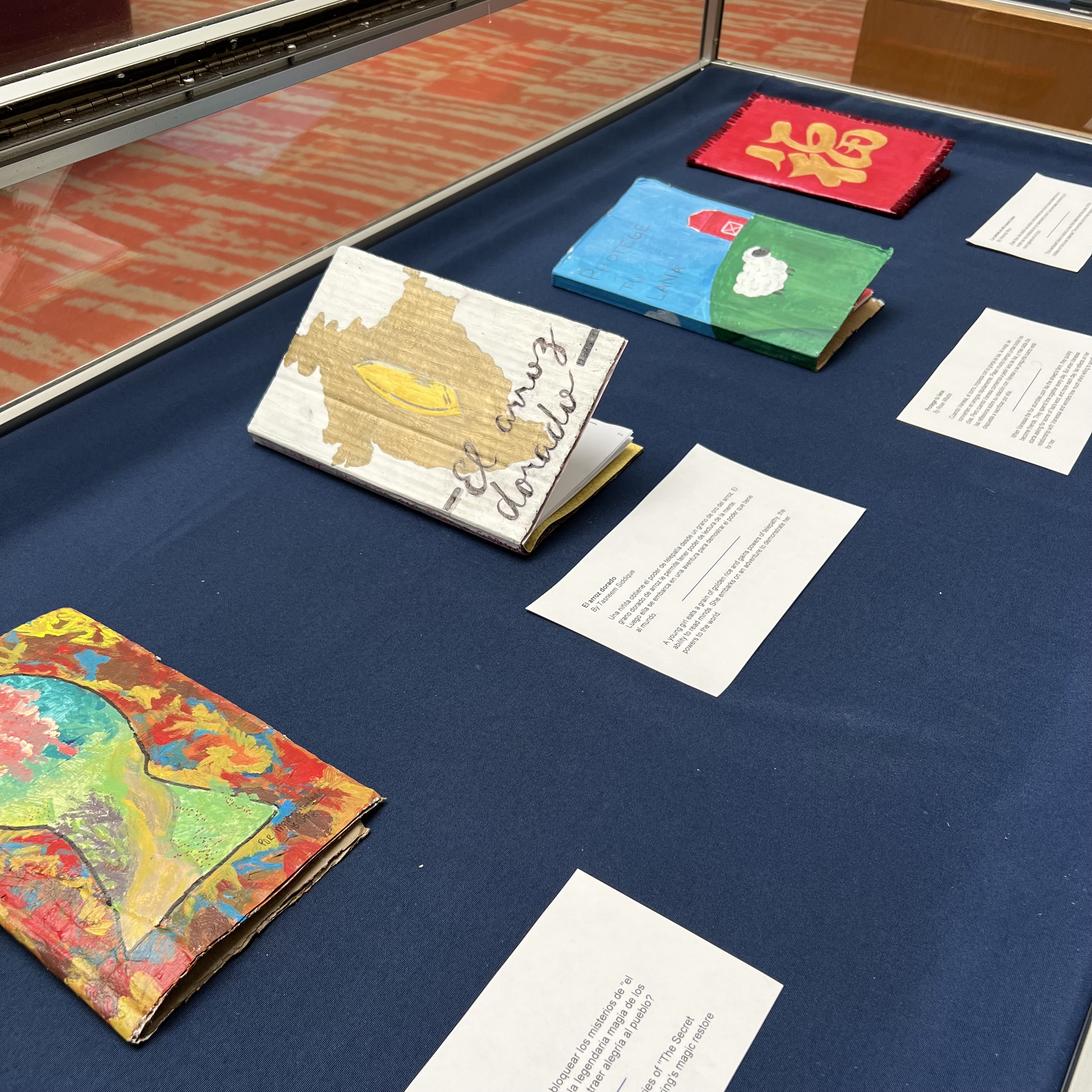“Drexel Cartonera: Memorias Al Cartón” Returns to W. W. Hagerty Library
May 8, 2024
 In March, the Drexel Libraries welcomed the return of the exhibit Drexel Cartonera: Memorias al cartón to the W. W. Hagerty Library. The first rendition of the exhibit was on display in the Library in spring 2022.
In March, the Drexel Libraries welcomed the return of the exhibit Drexel Cartonera: Memorias al cartón to the W. W. Hagerty Library. The first rendition of the exhibit was on display in the Library in spring 2022.
The exhibit features handmade books created by students enrolled in the course Performing Spanish: Language Proficiency through the Arts (Spanish 410), taught by Assistant Teaching Professor Celeste Dolores Mann during the winter 2024 term.
Students enrolled in the course were challenged to create original books based on the practice of cartonera (cardboard publishing)—an alternative publishing and art movement committed to community engagement, social activism, economic justice, and literacy. Students created their own unique cardboard book covers and wrote original short stories, translated in both Spanish and English.
About the Exhibit
Drexel Cartonera: Memorias al cartón is on display in W. W. Hagerty Library through June 14, 2024. The exhibit is free and open to all members of the Drexel community and the public.
About the Cartoneras Publishing Movement
“Cartoneras” or “Catadoras” (in Portuguese) were started in Argentina in the early 21st century and quickly spread to Brazil, Chile, México, Spain, and other Latin American countries. “Eloísa Cartonera” and “Dulcinea Catadora” street publishing cooperatives were pioneers in this endeavor, and others followed. People who made their lives by picking through garbage and recyclables in Argentina and Brazil, some of them homeless, began making books from leftover cardboard, uniquely painting their covers.